How To Help Your Child to Develop Great Reading Habit
Why it matters that children are reading less and less
A National Literacy Trust survey of 21,000 children and teenagers showed that 50% enjoyed reading very much but only three in 10 youngsters read in their own time.
More than half (54%) of children said they preferred to watch television rather than pick up a book while 17% said that they would be embarrassed if a friend saw them reading.
The Director of National Literacy Trust, Jonathan Douglas, says that these findings signal “a worrying shift in young people’s literacy habits”.
It is not only books that are being left on the shelf. Only 57% of children said that they read magazines, compared to 77% in 2005. While the percentage of children reading comics has dropped from 64% to 50% in the seven-year period.
By encouraging children to put aside at least 10 minutes per day for reading they can become 13 times more likely to read above the expected level for their age.
Most of us spend much more time with digital media than we did a decade ago. But today’s children have come of age with smartphones in their pockets. Compared to children a couple of decades ago, the way they interact with traditional media like books and movies are fundamentally different.
After analysing nationally representative surveys of over one million U.S. children collected since 1976 and discovered an almost seismic shift in how children are spending their free time.
Increasingly, books seem to be gathering dust.
It’s all about the screens
By 2016, the average 12th grader said they spent a staggering six hours a day texting, on social media, and online during their free time. And that’s just three activities; if other digital media activities were included, that estimate would surely rise.
Children didn’t always spend that much time with digital media. Online time has doubled since 2006, and social media use moved from a periodic activity to a daily one. By 2016, nearly nine out of 10 12th-grade girls said they visited social media sites every day.
Meanwhile, time spent playing video games rose from under an hour a day to an hour and a half on average. One out of 10 8th graders in 2016 spent 40 hours a week or more gaming – the time commitment of a full-time job.
With only so much time in the day, doesn’t something have to give?
Maybe Not. Many scholars have insisted that time online does not displace time spent engaging with traditional media. Some people are just more interested in media and entertainment, they point out, so more of one type of media doesn’t necessarily mean less of the other.
However, that doesn’t tell us much about what happens across a whole cohort of people when time spent on digital media grows and grows. This is what large surveys conducted over the course of many years can tell us.
Books go by the wayside
In 1980, 60 percent of 12th graders said they read a book, newspaper or magazine every day that wasn’t assigned for school.
By 2016, only 16 percent did – a staggering number of drops, even though the book, newspaper or magazine could be one read on a digital device (the survey question doesn’t specify format).
The number of 12th graders who said they had not read any books for pleasure in the last year nearly tripled, landing at one out of three by 2016. For iGen – the generation born since 1995 who has spent their entire adolescence with smartphones – books, newspapers and magazines have less and less of a presence in their daily lives.
Of course, teens are still reading. But they’re reading short texts and Instagram captions, not long form articles that explore deep themes and require critical thinking and reflection. Perhaps as a result, SAT reading scores in 2016 were the lowest they have ever been since record keeping began in 1972.
It doesn’t bode well for their transition to college, either. Imagine going from reading two-sentence captions to trying to read even five pages of an 800-page college textbook at one sitting. Reading and comprehending longer books and chapters takes practice, and teens aren’t getting that practice.
There was a study from the Pew Research Center a few years ago finding that young people actually read more books than older people. But that included books for school and didn’t control for age. When we look at pleasure reading across time, iGen is reading markedly less than previous generations.
So what should we do?
Should we wrest smartphones from iGen’s hands and replace them with paper books?
Probably not: smartphones are teens’ main form of social communication.
However, that doesn’t mean they need to be on them constantly. Data connecting excessive digital media time to mental health issues suggests a limit of two hours a day of free time spent with screens, a restriction that will also allow time for other activities – like playing quality time with family or reading.
Of the trends we found, the pronounced decline in reading is likely to have the biggest negative impact. Reading books and longer articles is one of the best ways to learn how to think critically, understand complex issues and separate fact from fiction. It’s crucial for being an informed voter, an involved citizen, a successful college student and a productive employee. If print starts to die, a lot will go with it.
How do we as a parent can help our child to develop great reading habit at early stage of their life?
The key is making a good habit of reading daily and make sure that reading is not boring or intimidating but actually fun and enjoyable.
The aim is not to teach or sounding out or recognising words to young children. It is to instil a love, an attitude, a passion. Right from the very beginning.
There is no room for pain. There is no room for struggle. There is no place for boredom. The early stage of reading should not involve any effort on the part of the child. It should be fun and nothing but fun.
A child who thinks that reading is rotten has been robbed.
Try avoiding books contain jargon or complex terminology. It is a way of blackballing children. Good writing especially for children should be easy to understand.
The modern world is so different from that of our childhood that it leaves us reeling. We send e-mails instead of letters. But we approach the teaching of reading… in exactly the same way our parents did.
It is difficult to adapt to change and many of us want to do things the way they have always been done. This is only to be expected in the field of reading instruction. Most parents are not teachers so their major resource is their own experience.
The best way would be bathing the children in print but with only praise and encouragement from our ends. It should be nothing but fun. We are going to accept their early ramblings as they turn the pages with delight because we know this yabber’s an early stage of reading in the same way that babbling is an early stage of talking. We are going to simple at their approximations. We are going to keep quiet when our child reads bunny instead of rabbit. We are not going to be hung up on accuracy. We are not going to insist that every word and every letter be read correctly.
We are going to create a world of useful and fascinating print. We are going to praise, stimulate and accept. We are going to develop an environment in which reading will naturally occur.
Getting rid of the stigma
For the book to work with the reluctant reader, it must attract the good reader as well, and then there will be no stigma attached to being seen with it.
Not every child likes a particular book. Thank goodness for individual differences. You know your child’s likes and dislikes better than anyone else. Search for something of great interest to them.
There are fiction and non-fiction books and magazines on practically every subject. Is it football, cars, computers, netball, stamps, surfing or horses?
Motivation is the key. Kids will fight to understand if they love the content.
In the fiction area humorous books by Andy Griffiths are popular (e.g. Just Crazy!, Just Tricking!).
Emily Rodda writes easy to read fantasy (The Deltora Quest and Rowan of Rin steries).
Morris Gleitzman writes humorously and explores social issues (Two Weeks with the Queen) as does Anne Fine with Madam Doubtfire.
Roald Dahl is an old favourite (The BFG) as is Robin Klein – her book Hating Alison Ashley has become an classic.
If a book is boring to certain children we face the danger of turning them off. Adults normally read a novel 20~30 pages before deciding not to continue.
Children will probably go 3~4 pages before reaching the same decision. Don’t make them continue – find another book.
The main obstacle with most reluctant readers is that they have come to dislike books. Either the subject matter has been inappropriate or they have had failure experiences.
Failure experiences fall into two types. The first is when the subject matter is incomprehensible to the child. The concepts are too difficult and the story or other content has no meaning.
The second is when the words themselves takes too much time to decode and the struggle to read each one takes away the enjoyment.
Our task with reluctant readers is to reverse the perception of failure. This in itself can be difficult but the situation is compounded when a child has an actual reading ability that is well below the child’s age.
As the gap between reading ability and actual age becomes wider it is more and more difficult to find a book that the child can read and wants to read. The child may be in grade six and only able to read books at a grade-two level. This is a dangerous situation and we need to give the child assistance without delay.
If you have an older child who can´t read, please don´t blame yourself. There are a multitude of psychological, emotional, social and physical issues that can be involved. Every parent has children with problems of one sort of another. Families that appear perfect are illusions. There is no such thing as a perfect parent or a perfect child.
Children who reach the age of twelve or thirteen and hate reading are a particular worry. They have fallen through the net and now pose a major challenge. For these kids all of the principles surrounding keeping reading fun are particularly important. These kids (more often boys) need to be reached through their interests. It is time to bring out the big guns. And take a dive into the culture of childhood.
If you employ the strategies introduced here and keep everything happy and enjoyable, you will have a very good chance of finding your son or daughter lying on the bed, engrossed in a story and not wanting to be disturbed. This is what it is all about.
Okay… so which book do we recommend to start?
There are many resources and recommendations and even local librarian can be a great help. Here is the suggested reading or recommended books that we found very entertaining and loved by many children but this is just a suggestion and you are welcome to explore any books that your child is particularly interested in.
Books for pre-schoolers
Mainly picture books still, but pre-schoolers love a bedtime story, so longer texts and poetry can star.
Angelina Ballerina by Katharine Holabird
Berenstain Bears titles by Stan and Jan Berenstain
Brown Bear, Brown Bear, What Do You See? By Bill Martin Jr.
C-a-a-r Ca-a-a-a-r by Geoff Havel
Can’t You Sleep, Little Bear? By Martin Waddell
Carousel by David Miller
The Cat in the hat by Dr Seuss
Dinnertime! By Ann Weld
Does a Kangaroo Have a Mother, too? By Eric Carle
Drac and the Gremlin by Allan Baillie
Each Peach Pear Plum by Janet and Allan Ahlberg
Eat Your Peas by Kes gray
Edward The Emu by Sheena Knowles
Elmer by David McKee
The Enormous Crocodile by Roald Dahl
Finding Jack by Ann James
Hairy Maclary from Donaldson’s Dairy by Lynley Dodd
Harry the Dirty Dog by Gene Zion
I’m Green and I’m Grumpy by Alison Lester
Jump, Baby by Penny Matthews
Let’s Get a Pup! By Bob Graham
The lighthouse Keeper’s Lunch by Ronda and David Armitage
A Lion in the Meadow by Margaret Mahy
Little White Dogs Can’t Jump by Bruce Whatley and Rosie Smith
The Little Yellow Digger by Betty Gilderdale
Looking for Crabs by Bruce Whatley
Madeline by Ludwing Bemelmans
The Man Whose Mother Was a Pirate by Margaret Mahy
Mr Gumpy’s Outing by John Burningham
Mr McGee Series by Pamela Allen
Oops! By Colin McNaughton
The Paper Bag Princess by Michael Martchenko
Possum Magic by Mem Fox
Pumpkin Soup by Helen Copper
The Rainbow Fish by Marcus Pfister
Roger Was a Razor Fish and Other Poems by Jill Bennett
Rosie Sips Spiders by Alison Lester
Rosie’s Walk by Pat Hutchins
The Snowman by Raymond Briggs
The Story of Ferdinand by Munro Leaf
The Tale of Peter Rabbit by Beatrix Potter
There’s a Hippopotamus on Our Roof Eating Cake by Hazel Edwards
There’s a Sea in My Bedroom by Margaret Wild
Thomas the Tank Engine Series by Rev. W. Awdry
Tom Goes to Kindergarten by Margaret Wild
We’re Going on a Bear Hunt by Michael Rosen
What on Earth Can it Be? By Roger McGough
Where the Wild Things Are by Maurice Sendak
Where’s my Teddy? By Jez Alborough
Willy the Wimp by Anthorny Browne
Non-Fiction
Gentle Giant Octopus by Karen Wallace
Happy Birth Day! By Robie H. Harris
Puppy Love by Dick King-Smith
Early Primary
By this age, some children will want to read by themselves. Finding the right beginner book that will lead them to reading independence is important.
Fortunately there are many series just designed for this age group and some outstanding classic books. All make great read-alouds or books to share.
Bob the Biulder and Elves by Emily Rodda
Chicken, Chips and Peas by Allan Ahlberg
Flat Stanley by Jeff Brown
Frog and Toad Are Friends by Arnold Lobel
Happy Families series by Allan and Janet Ahlberg
Honey and Bear by Ursula Dubosarsky
Honey Sandwich by Elizabeth Honey
Millie Starts School by Jane Godwin
Stumpy Grumpy Grasshopper by Steve Wilde
Tashi Series by Anna Fienberg and Barbara Fienberg
The Three Billy Goats Gruff by Vivian French
The Treasure Sock by Pat Thomsen
Lower Primary
A Year can make a big difference. Children can start reading Harry Potter and the Philosopher’s Stone at eight years.
Still room for the occasional picture book, and puzzles rule.
Animalia by Graeme Base
The BFG by Roald Dahl
The Birdsville Monster by Dough Macleod
The bugalugs Bum Thief by Tim Winton
Charlotte’s Web by E.B.White
The Eleventh Hour by Graeme Base
Emily Eyefinger Series by Duncan Ball
The Emperor’s New Cloths by Hans Christian
Far Out, Brussel Sprout! By June Factor
Freeze a Crowd by Paul Jennings
Gasp! By Terry Denton
Grimms’ Fairy Tales by Jacob and Wilheim Grimm
John Brown, Rose and the Midnight Cat by Jenny Wagner
The Kid with the Amazing Head by Andrew Weldon
Miss Lily’s Fabulous Pink Feather Boa by Margaret Wild
Old Tom Series by Leigh Hobbs
The Owl Tree by Jenny Nimmo
The Owl Who Was Afraid of the ark by Jill Tomlinson
Poetry to the Rescue by Steven Herrick
Princess Smartypants by Babette Cole
Run Damon, Run by Anne Ingram
The Story of the LittleMole Who Knew It Was None of His Business by Werner Holzwarth
The True Story of the Three Little Pig by Jon Scieszka
The Twenty-Seventh Annual African Hippopotamus Race by Morris Lurie
The Two Bullies by Junko Morimoto
Two Hands Together by Diana Kidd
The Ugly Duckling by Hans Christian Andersen
The Velveteen Rabbit by Margery Williams
The Waterhole by Graeme Base
The Whale’s Song by Dyan Sheldon
Where the Forest Meets the Sea by Jeannie Baker
Winnie-the-Pooh by A.A. milne
Where’s Wally? By Martin Handford
Non-Fiction
The Chocolate Lovers by Joan Van Loon
How to Guzzle Your Garden by Jackie French
The Magic School Bus Series by Joanna Cole
What a Laugh! By Philip Adams and Patrice Newell
Middle Primary
Needed now are books that look ‘grown-up’. So many old favourites to turn to such as Biggles, Anne of Green Gables or Little Women and famous fantasy series like The Borrowers or E. Nesbit’s stories from Victorian times. Exotic worlds to encounter as well as contemporary stories.
Alice’s Adventures in Wonderland by Lewis Caroll
Asterix Series by Rene Goscinny
The Book of Unicorns by Jackie French
Captain Underpants series by Dav Pilkey
Counting on Frank by Rod Clement
Creepy Conundrums by Rolf Heimann
Dolphins Dance by Jutta Goetze
Farm Boy by Michael Morpurgo
Finders Keeprs by Emily Rodda
The Game of the Goose by Ursula Dubosarsky
Hanna and the Tomorrow Room by Libby Gleeson
Hating Alison Ashley by Robin Klein
How to Eat Fried Worms by Thomas Rockwell
Lily Queench Series by Natalie Jane Prior
The magic Faraway Tree by Enid Blyton
Matilda by Roald Dahl
Mr William Shakespeare’s Plays by Marcia Williams
My Sister’s a Yoyo by Gretel Killeen
The Nimbin Series by Jenny Wagner
The Phantom Tollbooth by Norton Juster
Redwall Series by Brian Jacques
The Saddle Club Series by Bonnie Bryant
Selby Series by Duncan Ball
Snow White in New York by Fiona French
Specky Magee by Garry Lyon and Felice Arena
Staying Alive in Year Five by John Marsden
Storm Boy by Colin Thiele
Storymaze: the Ultimate Wave by Terry Denton
A Taste of Blackberries by Doris Buchannan Smith
Tintin series by Herge
A wee Walk by Margaret Clark
Weslandia by Paul Fleischman
Wicked! By Paul Jennings and Morris Gleitzman
The Wind in the Willows by Kenneth Grahame
Worst Best Friends by Max Dann
Zoom by Istvan Banyai
Non-Fiction
Black Snake by Carole Wilkinson
Fishing for Islands by John Nicholson
My Place by Nadia Wheatley
Olympia: Warrior Athletes of Ancient Greece by Dyan Blacklock
Upper Primary and Lower Secondary
Who can say what direction a child’s reading might take at this age? Possibilities from Andy Griffiths to Dickens.
Artemis Fowl Series by Eoin Colfer
Boy Overboard by Morris Gleitzman
Bridge to Terabithia by Katherine Paterson
Cairo Jim series by Geoggrey McSkimming
45-47 Stella Street and Everything that Happened by Elizabeth Honey
Goodnight Mister Tom by Michelle Magorian
Graffiti on the Fence by Elaine Forrestal
Harry Potter Series by J.K. Rowling
Hatchet by Gary Paulsen
The Haunting by Margaret Mahy
Hazel Green Series by Odo Hirsch
The Hobbit by J.R.R. Tolkien
Holes by Louis Sachar
The illustrated Mum by Jacqueline Wilson
I Own The Racecourse! By Patricia Wrightson
The Hitchhikers Guide to Galaxy by Douglas Adams
Just Tricking! By Andy Griffiths
The Lio, the Witch and the Wardrobe by C.S. Lewis
Little Brother by Allan Baillie
Madame Doubtfire by anne fine
Mama’s Going to Buy You a Mockingbird by Jean Little
Master of the Grove by Victor Kelleher
The Mysteries of Harris Burdick by Chris Van-Allsburg
The Neverending Story by Michael Ende
Pagan’s Crusade by Catherine Jinks
The Power of One by Bryce Courtenay
A Series of Unfortunate Events Series by Lemony Snicket
The Snow Goose by Paul Gallico
Space Demons by Gillian Rubinstein
Stormbreaker by Anthony Horowitz
Swashbuckler by James Moloney
Thunderwith by Libby Hathorn
Time Stops for No Mouse by Michael Hoeye
Toad Rage by Morris Gleitzman
Two Weeks with the Queen by Morris Gleitzman
The Watertower by Gary Crew
A Wizard of Earthsea by Ursula le Guin
Non-Fiction
Chinese Cinderella by Adeline Yen Mah
Diary of a Young Girl by Anne Frank
DK Eyewitness Guides by Various Authors
The Encyclopedia of Preserved People by Natalie Jane Prior
Guinness World Records Series
I Can Jump Puddles by Alan Marshall
A Man called Possum by David Harris
My Family and other Animals by Gerald Durrell
The Smallpox Slayer by Alan Brown
Written in Blood by Beverley MacDonald
Secondary
This age group will be reading an increasing number of adult titles, and the books in this list also have strong adult appeal.
All We Know by Simon French
A Bridge to Wiseman’s Cove by James Moloney
The Cay by Theodore Taylor
The Chocolate War by Rober Cormier
Coraline by Neil Gaiman
Deadly, Unna? By Phillip Gwynne
Fat Chance by Margaret Clark
Fighting Ruben Wolfe by Markus Zusak
The Girl from the Sea by James Aldrige
I Capture the Castle by Dodie Smith
Lockie Loeonard Human Torpedo by Tim Winton
Looking for Alibrandi by Melina Marchetta
Northern Lights by Philip Pulman
The Obernewtyn Chronicles by Isobelle Carmody
Sabriel by Garth Nix
To Kill a Mockingbird by Harper Lee
Tomorrow, When the War Began by John Marsden
Non-Fiction
Maybe Tomorrow by Boori Pryor and Meme McDonald
Soldier Boy by Anthony Hill
Zarafa by Michael Allin
We hope this helps your children building great habit of reading good literature from early stage of their life.
Happy Reading… Happy Learning…
Further Reference: The Reading Bug By Paul Jennings, 2003



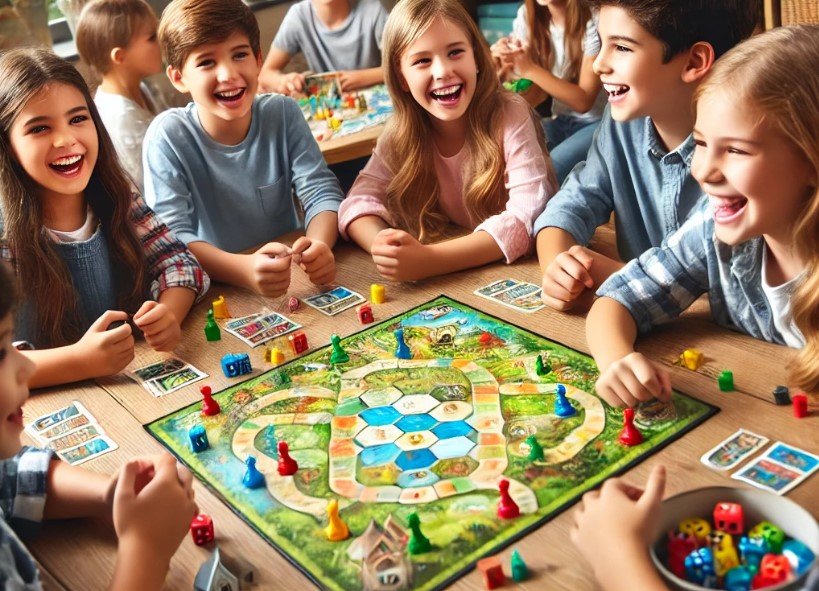
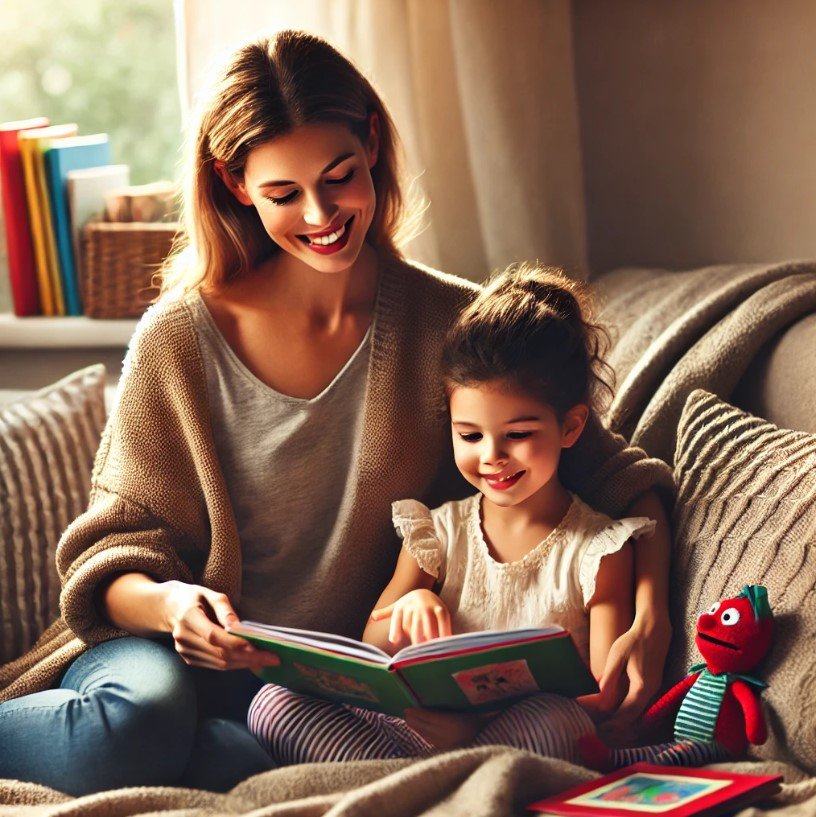
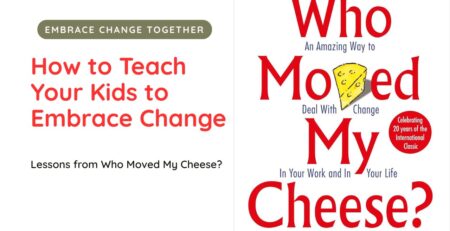



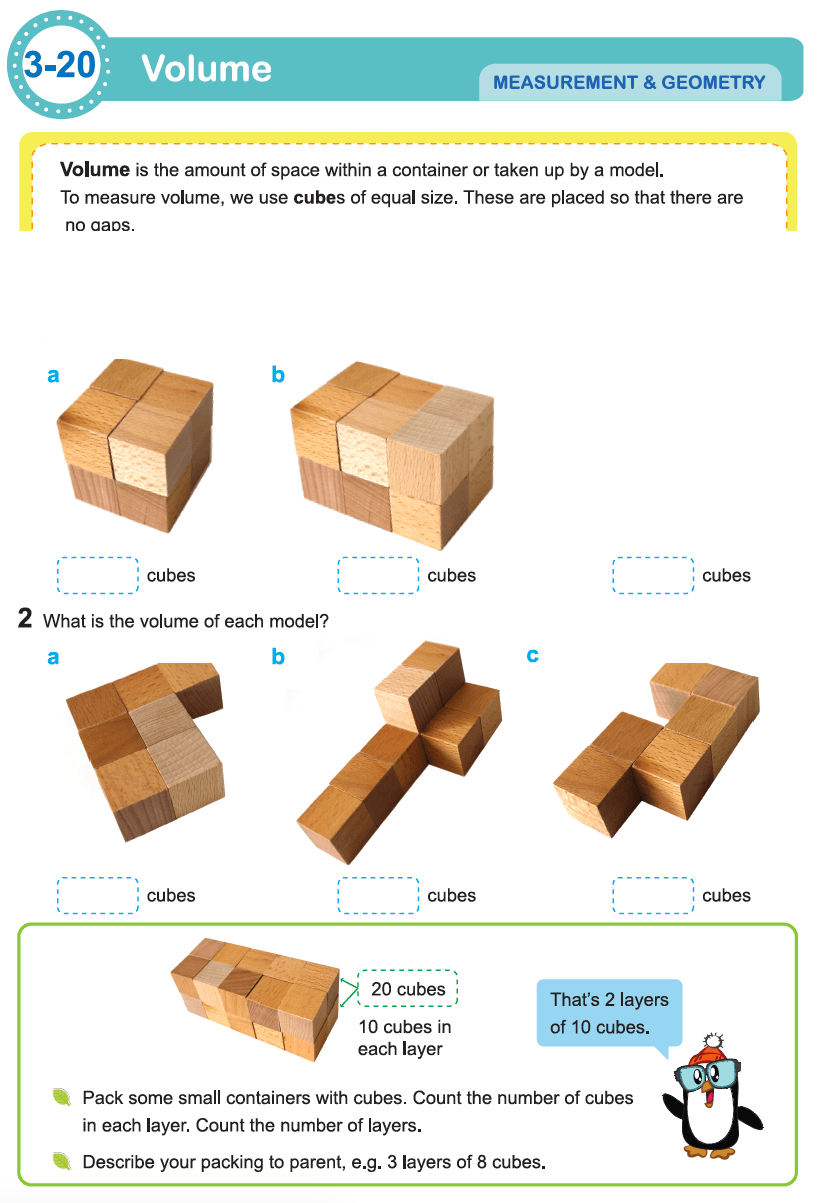

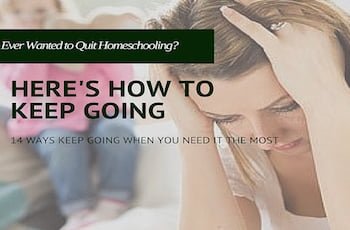

LEAVE A COMMENT